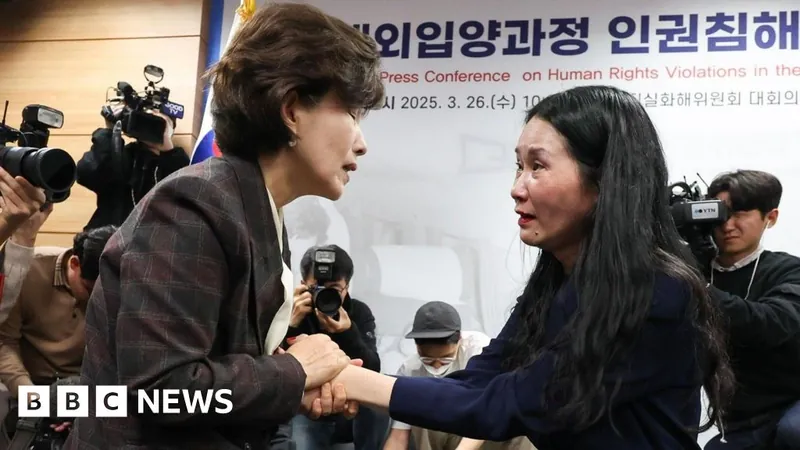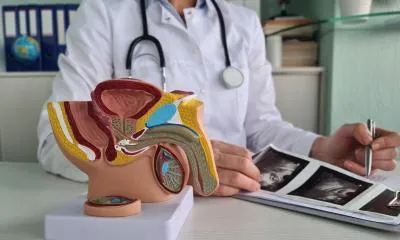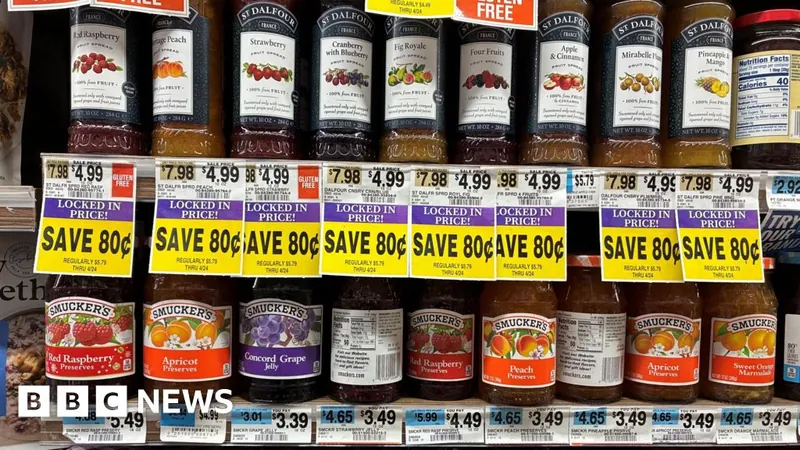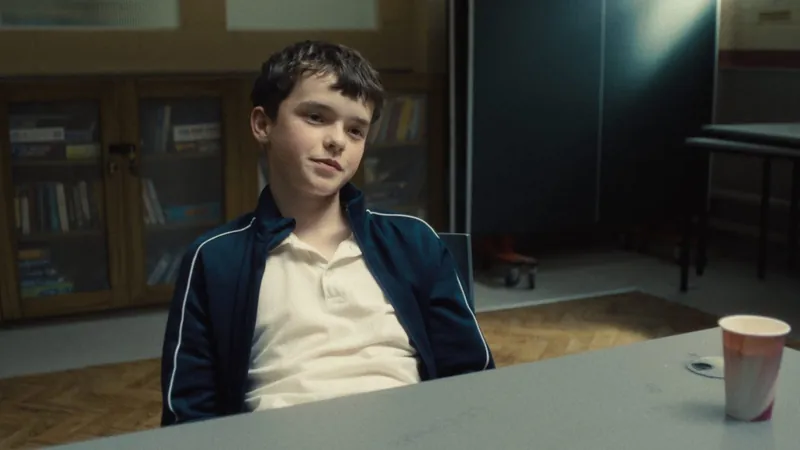
Shocking Revelations: South Korea’s Dark History of Child Exports for Adoption
2025-03-26
Author: Benjamin
South Korea's Adoption Controversy
South Korea is facing serious accusations of widespread human rights abuses in a national adoption program that has seen at least 170,000 children and infants sent overseas for adoption, according to a groundbreaking inquiry released by the Truth and Reconciliation Commission.
The report highlights a troubling lack of government oversight, allowing private agencies to profit from the “mass exportation” of children, leading to disturbing practices such as fraud, falsified records, and coercion. Since the 1950s, South Korea has been the leader in sending children abroad for adoption, primarily to Western nations.
Despite reforms aimed at tightening adoption processes, many adoptees and their birth families are still struggling to come to terms with their experiences. One woman shared her harrowing tale, stating, “My adoptive parents took better care of the dog than they ever did of me.”
Park Sun-young, chairperson of the commission, called it a “shameful part of our history” during a conference, emphasizing that while some adoptees were fortunate to find loving families, countless others endured lifelong trauma due to systemic flaws in the adoption system.
Ongoing Investigations and Complaints
Launched in 2022, the investigation has already prompted 367 adoptees to file complaints about fraudulent practices. Preliminary analysis identified 56 individuals as victims of human rights violations, with the inquiry due for completion in May.
In the wake of the Korean War, South Korea faced economic hardships, leading to a surge in transnational adoptions facilitated by private agencies armed with extensive power thanks to special adoption laws. The report points to critical “systemic failures” that allowed these agencies to operate without adequate oversight, leading to serious ethical breaches.
Ethical Breaches in Adoption Practices
Foreign adoption agencies reportedly demanded a quota of children each month, prompting Korean agencies to comply with minimal procedural scrutiny. With no government limitations on adoption fees, the process morphed into a “profit-driven industry,” according to the findings.
Further discrepancies included adoptions conducted without proper consent from birth mothers and insufficient vetting of adoptive parents. Disturbingly, agencies often fabricated reports suggesting children had been abandoned and deliberately assigned them false identities. As a result, many adoptees now face challenges accessing information about their biological families due to incorrect documentation.
Recommendations and Reflection
The commission's recommendations include a formal government apology and adherence to international standards regarding transnational adoptions.
The horrific legacy of this system is exemplified by the story of Inger-Tone, who was adopted by a Norwegian couple in their 50s after they were initially denied approval by authorities due to their age. They visited a South Korean orphanage, handpicked Inger-Tone, and only later submitted an adoption application, which was approved under dubious circumstances.
Inger-Tone reports enduring significant difficulty adapting to life in Norway and has claimed her adoptive father sexually abused her. “It was so painful. I wasn't able to talk or express myself, other than crying at night,” she lamented.
Her fight for justice led to a successful lawsuit against the Norwegian local government, which acknowledged its failure to supervise her adoptive home and awarded her damages. However, she expressed dissatisfaction that her adoptive parents never faced criminal charges for their actions.
Reflecting on her life, she remarked, “I have been living in the wrong country and I have had a painful and miserable life. I don’t wish this for anyone. I sincerely hope they do not adopt any more children out of Korea.”
As the investigation continues and more individuals come forward, the world watches closely, demanding accountability and change in a system that has long exploited vulnerable children. This harrowing episode forces us to confront a troubling reality about the adoption industry and the rights of adoptees.









 Brasil (PT)
Brasil (PT)
 Canada (EN)
Canada (EN)
 Chile (ES)
Chile (ES)
 Česko (CS)
Česko (CS)
 대한민국 (KO)
대한민국 (KO)
 España (ES)
España (ES)
 France (FR)
France (FR)
 Hong Kong (EN)
Hong Kong (EN)
 Italia (IT)
Italia (IT)
 日本 (JA)
日本 (JA)
 Magyarország (HU)
Magyarország (HU)
 Norge (NO)
Norge (NO)
 Polska (PL)
Polska (PL)
 Schweiz (DE)
Schweiz (DE)
 Singapore (EN)
Singapore (EN)
 Sverige (SV)
Sverige (SV)
 Suomi (FI)
Suomi (FI)
 Türkiye (TR)
Türkiye (TR)
 الإمارات العربية المتحدة (AR)
الإمارات العربية المتحدة (AR)